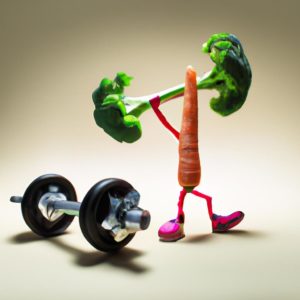Everyone has heard of low-carb diets. Low carb diets can mean different things to different people. Low carb diets used to mean eating butter and bacon every day. While it might seem like a quick way to improve your health, most people know it is not.
Low carb diets are now a different thing. Low carb diets can help you get rid of the most harmful carbs: processed (refined) grains, refined sugars, junk food and all added and refined sweeteners. Many people also try to limit the amount of starchy foods they consume and avoid corn and potatoes.
A Low Carb Diet is a good idea.
Low carb diets can be adopted for many reasons. For the past 10 years, I have lived on a low-carb diet. It has helped me overcome chronic acne and food addiction. This is my personal experience with low-carb diets:
- I don’t count grams per day like some diet advice suggests.
- I do not eat bacon, butter, or meat.
- I eat healthy, balanced meals that are rich in protein, plenty of greens, and all the vegetables I like.
- Healthy fats are always a part of my daily diet.
- I love vegetables like sweet potatoes, berries, winter squash, and pumpkin.
- For optimal gut health and mood function, fermented foods are a regular part of my daily routine.
- Most of my fermented foods are kimchi, sauerkraut and plain (nonfat) Greek yogurt. I also eat coconut kefir and 100% dark chocolate. ).
What about whole grains? If my body desires them, I will eat whole, gluten free grains like oats or wild rice.
This way of eating can teach you to love real food and how your body responds better to it than sugary and processed foods. Your blood sugar levels will be more stable and your work focus may improve.
How a low-carb diet can help you achieve better health and lose weight
Lower blood sugar
Low carb diets can help reduce sugar levels in the bloodstream. Carbohydrates are broken down into simple sugars which then turn into glucose for your metabolism. A lower intake of carbs can mean fewer sugars which is better for your waistline and heart health.
Lower risk of type 2 diabetes
A heart-healthy diet high in fruits, lean protein and healthy fats can help prevent Type 2 diabetes.
You may also notice a decrease in insulin swings due to higher blood sugar levels. However, you should not cut carbs too often or you might feel dizzy and lightheaded.
Set yourself up for success on a low-carb diet
It is important to keep in mind that you should reduce carbs for a minimum of a few days when you start a low-carb diet. Side effects similar to flu symptoms can occur if you reduce carbohydrate intake (especially from produce). This will make it difficult for you to stick with your low-carb diet. You should take it slow and focus on reducing added sugars and refined grains before worrying about carbs in fruits and vegetables.
It’s important to think about where your calories come from when you don’t eat many carbs. Naturally, you’ll be eating more fats and protein. This can lead to weight gain over time.
Make sure to drink enough water from the moment you get started. As your body starts to remove sodium and water through the kidneys, you may feel more thirsty. It is important to drink enough water as your body adjusts.
At each meal, focus on fresh produce and lean protein. This is easy to do, even if you are vegetarian or vegan. You may be wondering what about whole grains? If your body can tolerate them, you may be able to eat moderately low-carbohydrate diets that include small amounts of whole grain throughout the day.
Whole grains, especially steel-cut or roll oats, wild Rice, and Quinoa, have many health benefits you can benefit from if your body is able to tolerate them. They can also be used to lower blood pressure and provide good iron and magnesium.







